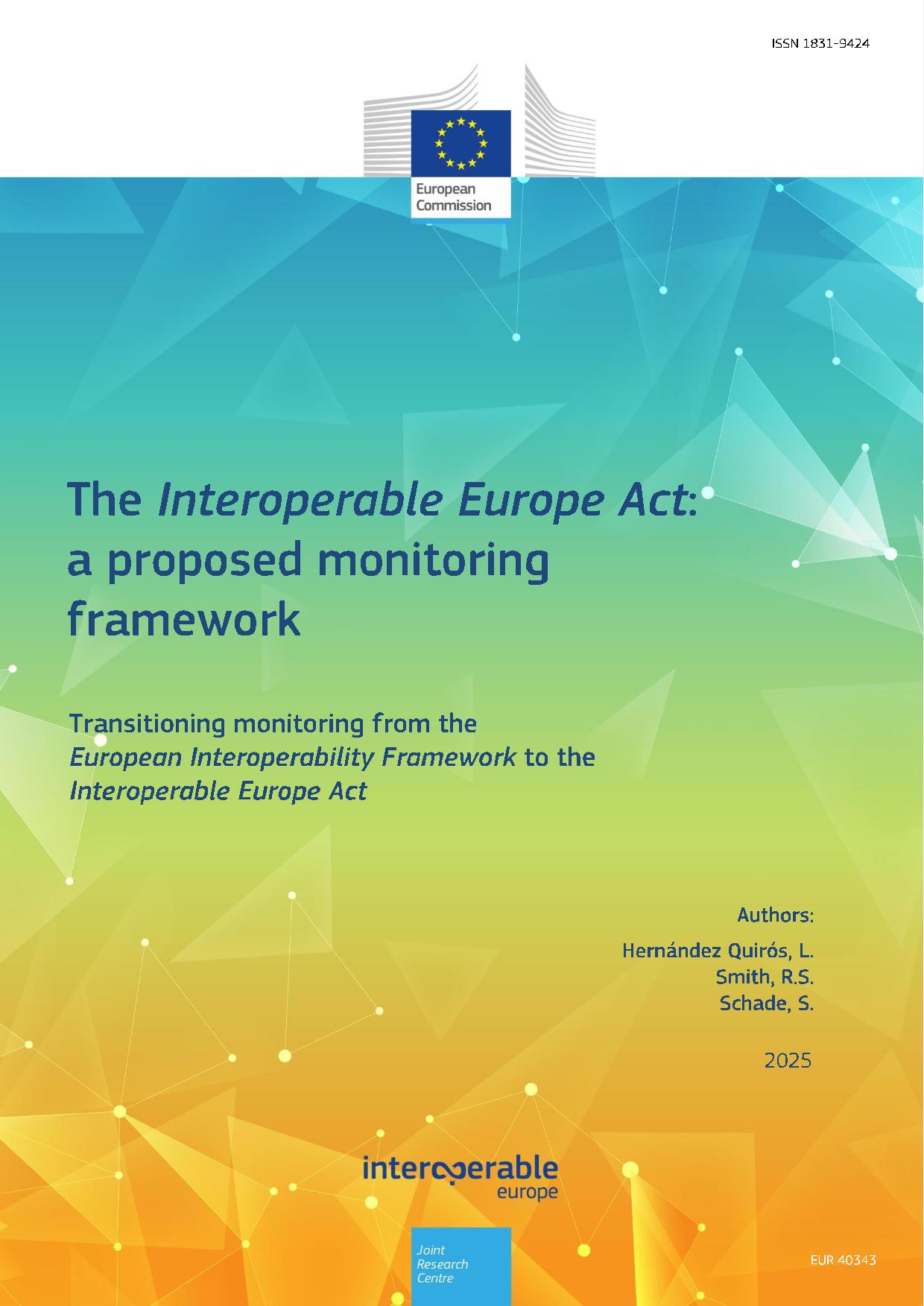After nearly 20 years of voluntary efforts to enhance digital government interoperability across EU borders, the Interoperable Europe Act (REGULATION (EU) 2024/903) came into force on 11th April 2024.
Over the past decade, the Directorate-General for Digital Services (DIGIT) has monitored progress in cross-sector interoperability, digital transformation and innovation through the National Interoperability Framework Observatory (NIFO) (now Interoperable Europe Monitoring), which included the European Interoperability Framework (EIF) Monitoring and more recently the Berlin Declaration Monitoring (BDM).
This report presents the Joint Research Centre’s proposal for monitoring the implementation of the Interoperable Europe Act, focusing on the key elements of Article 20. These key elements include:
- Progress in interoperable trans-European digital public services
- Advancements in the implementation of the EIF
- Uptake of interoperability solutions
- Development of open-source interoperability solutions for public sector innovation in cooperation with GovTech
- Enhancement of skills in public administrations
This proposal, developed through an iterative co-creation process with stakeholders, presents a theoretical framework that serves as the foundation for its subsequent operationalisation and roll-out. It advocates a data-driven monitoring approach focused on relevance and aimed at establishing a baseline for a new era of cross-border interoperability. The approach seeks to reduce reporting fatigue while generating valuable evidence for the European Parliament and the Council, supporting the work of the Interoperable Europe Board, and informing key European Commission strategies such as the Digital Decade.
Rooted in the principles of interoperability and the digital transformation of public administration, the proposal also advances the vision of digital-ready policymaking—ensuring that the policy cycle remains proactive and future-oriented, in line with the European Commission’s Better Regulation Guidelines.


